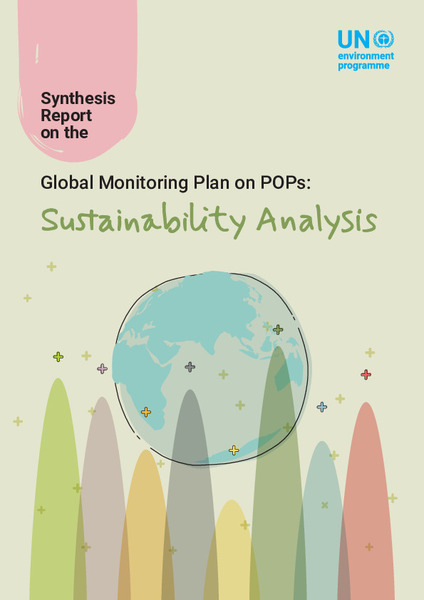| dc.contributor | Industry and Economy Division | en_US |
| dc.contributor.author | United Nations Environment Programme | en_US |
| dc.contributor.other | United Nations Institute for Training and Research | en_US |
| dc.date.accessioned | 2024-11-14T07:02:31Z | |
| dc.date.available | 2024-11-14T07:02:31Z | |
| dc.date.issued | 2024-11 | |
| dc.identifier.isbn | 978-92-807-4189-6 | en_US |
| dc.identifier.other | DTI/2676/GA | en_US |
| dc.identifier.uri | https://wedocs.unep.org/20.500.11822/46592 | |
| dc.description | The Global Monitoring Plan (GMP) under the Stockholm Convention on Persistent Organic Pollutants (POPs) is a framework that enables collection of comparable monitoring data from all regions of the world to evaluate the effectiveness of the Stockholm Convention in minimizing human and environmental exposure to POPs. The GMP leads the development of the global and regional global monitoring reports.
Sustaining the GMP is crucial to monitor progress made in the world regarding the effectiveness of the Convention. The GMP has proven to be successful in countries and regions; the two case studies presented provide an example of how such systems can be of service to the regions and how a coordinated effort supports its sustainability. | en_US |
| dc.format | pdf | en_US |
| dc.language | English | en_US |
| dc.publisher | United Nations Environment Programme | en_US |
| dc.subject | persistent organic pollutant | en_US |
| dc.subject | pollutant monitoring | en_US |
| dc.subject | environmental sustainability | en_US |
| dc.subject | case study | en_US |
| dc.title | Global Monitoring Plan on POPs: Sustainability analysis - Synthesis Report | en_US |
| dc.type | Publications | en_US |
| dc.type | Project Reports | en_US |
| wd.identifier.sdg | SDG 3 - Good Health and Well-Being | en_US |
| wd.topics | Chemicals and Pollution Action | en_US |
| wd.identifier.pagesnumber | 30 | en_US |
| wd.identifier.doi | https://doi.org/10.59117/20.500.11822/46592 | |


